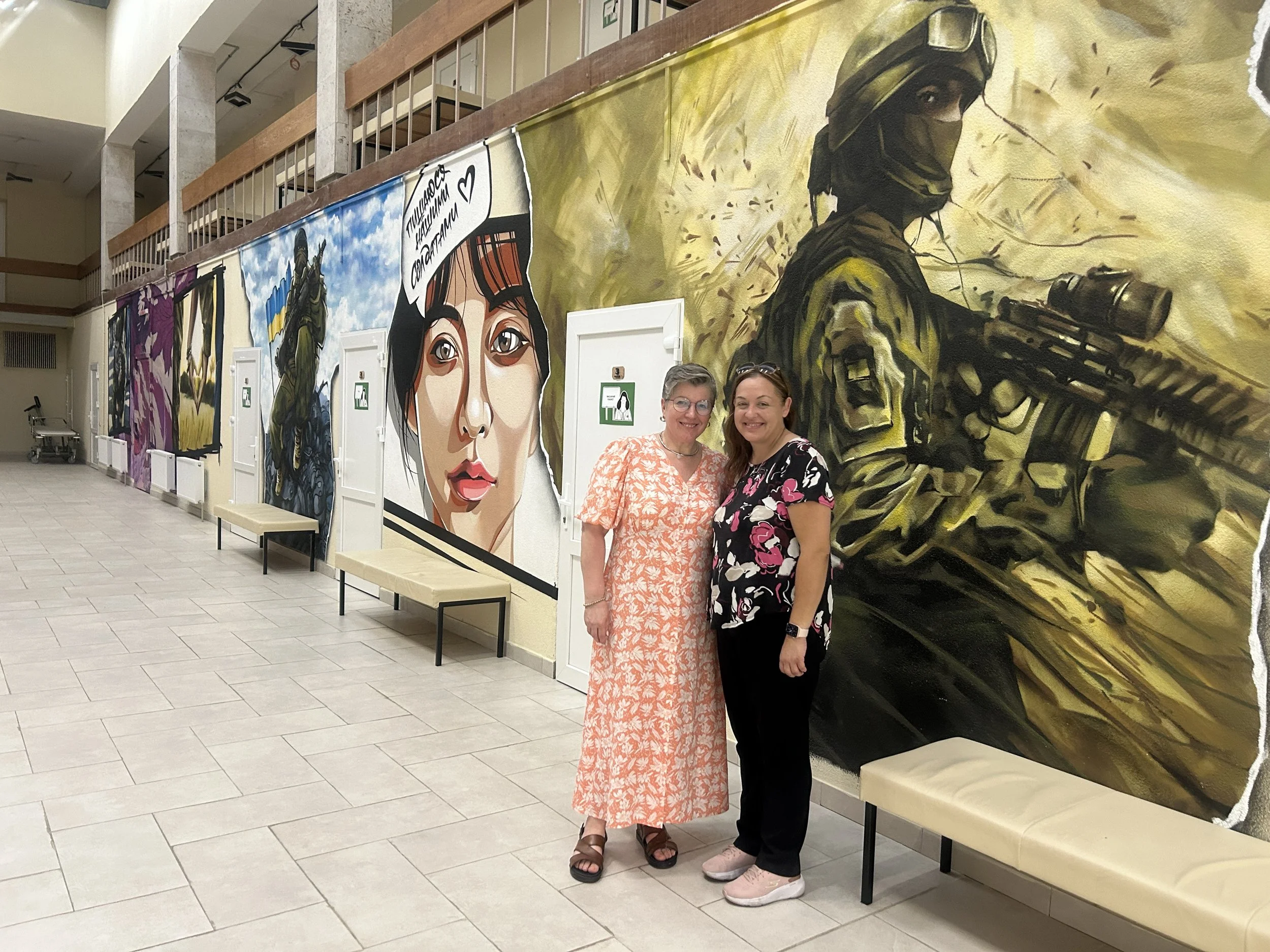Dispatch from Bucha: Olha tells of Life on the Frontlines
Olha is a therapist at Forest Glade, a veteran's rehabilitation hospital in the greater Bucha region. Olha had a patient afraid of elevators. The man had been a soldier who was buried under the earth for 3 days on the frontline after an explosion. As a result, a very small space such as an elevator scared him. Olha helped him imaging how this soldier could think through what would seem to him to be a dangerous or scary situation and how he could react in such a situation. When he left the hospital, he was less afraid than when he had arrived.
Another soldier wrote to Olha from the frontline that he is alive, and that techniques she gave him proved helpful. Olha reported that working with him was very long work for her. He changed the focus of his attention from the idea that it was a 50/50 chance that he would die or survive to placing his attention on the fifty percent possibility of survival. It sounds simple, but Olha reported that it was quite important that she and the soldier focus on his possibility of survival. “This technique is about that other 50% possibility of survival,” she said. The soldier must hold the idea of both possibilities that he may die or he may survive. He must not focus solely that there is a 50% chance of death. He must do his best to survive. “This 50% survival chance exists,” Olha told him. “Do not forget about it.”
Olha said when listening to soldiers she thinks it is amazing these soldiers are in such living conditions. These soldiers are people who are pushed to their limits in every way. Normally they go to the frontline for 5 days, but they can be stuck there for 10-15 days. The soldiers take as little water as possible. Maybe a drone can drop them some water. In this situation on the frontlines a soldier can be injured or die. She then recalled the soldier who was afraid of the elevator. Olha said he was around people who were dead and others had been captured by Russia. He had been surrounded by dead bodies for three days and finally our other Ukrainian soldiers found him.
She said “When I think about it I am just listening and they are living this reality.”
Olha has had to care for her own mental health. She felt deeply burned out, so that from 2019-2023 she didn’t work in psychology. In her view, private practice provides much easier cases and these cases are not necessarily about the war. This balance between private practice and assisting soldiers helps.

